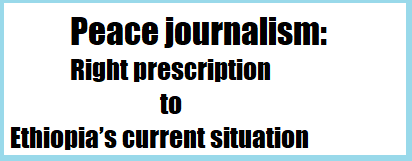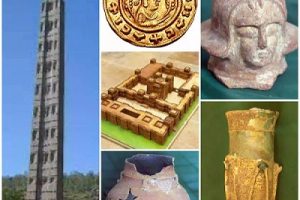
In modern democracies, the media holds a revered position as the “fourth estate,” signifying its pivotal role as a check on the three traditional branches of government: the legislative, executive, and judiciary. Acting as a vigilant watchdog, it scrutinizes their actions, policies, and decisions, thereby upholding transparency, accountability, and the public’s right to information. This esteemed status underscores the media’s indispensable function in fostering an informed citizenry and safeguarding democratic principles.
However, the efficacy of the media as the fourth estate is contingent upon its ability to operate independently, free from undue influence or coercion. Press freedom is essential for ensuring that journalists can fulfill their duty to serve as society’s watchdogs without fear of reprisal or censorship. Therefore, safeguarding the freedom of the press is paramount for upholding the integrity of democratic institutions and preserving the public’s right to know.
Related to press freedom, the founding father and the third president of America Thomas Jefferson Ones said “Were it left to me to decide whether we should have a government without a newspaper, or newspaper without a government, I should not hesitate a moment to prefer the later. But I should mean that every man should receive those papers and be capable of reading them”
This quote underscores the pivotal role of a free media in providing information, scrutinizing those in power, and fostering transparency and accountability. This perspective emphasizes that a vibrant and independent press is indispensable for the maintenance of a healthy democracy, as it empowers citizens to participate effectively and make informed decisions about their governance.
In this case, the responsibility of the media goes beyond merely reporting events; it extends to offering accurate and quality information grounded in reality. Effective coverage involves identifying the root causes of conflicts, acting as a watchdog to ensure accountability, reducing communal differences, clarifying the political landscape, and addressing historical grievances that fuel discord.
Unquestionably, the media can exercise important influence, but it also has the potential to be a destructive weapon when it disseminates misinformation, propagates hate speech, sensationalizing or diverts attention from critical issues while exhibiting bias. The Rwandan genocide stands as a stark illustration of these potential ramifications.
During the genocide, media outlets played a devastating role by not only spreading propaganda that dehumanized the minority group but also by directly inciting violence against them. In this instance, the media exacerbated ethnic tensions and fueled the atrocities that ensued. This tragic episode leads to catastrophic consequences such as genocide of an estimated 800,000 to 1 million people in just 100 days, where the media became complicit in one of the darkest chapters of human history.
And, the negative role of the media has even got worse particularly, in an era marked by rapid technological advancements and the proliferation of digital media, the role of the media has expanded beyond traditional boundaries. With the rise of social media platforms and online news outlets, information dissemination has become more decentralized, empowering citizens to actively participate in the public discourse. However, the rise of the new media also presents challenges, including the spread of misinformation, disinformation, and hate speech, wide spread of citizen journalists and the erosion of trust in traditional media sources.
Studies shows that social media platforms like Twitter, Gab, Facebook, GitHub from total of 451,709 sentences of these, 371,452 sentences are classified as hate speech, while 80,250 are categorized as non-hate speech. These problems will be worsened in developing countries like Ethiopia.
Ethiopia proclaimed Hate Speech and Disinformation Prevention and Suppression Proclamation 1185 /2020 with the aim of Controlling and suppressing the dissemination and proliferation of hate speech, disinformation and other related false and misleading information with a liability from simple imprisonment not exceeding two years or a fine not exceeding 100,000 birr,
However, in addition to government regulations controlling social media require a multi-faceted approach involving, platform policies, technological solutions, and societal efforts to promote tolerance and understanding.
In the past years; the country has grappled with widespread protests, conflicts, and anti-governmental activities, resulting in heightened political, economic, and social tensions across various regions. During such tumultuous times, the media’s portrayal of such events significantly shapes the perceptions of citizens, from high-ranking government officials to ordinary individuals. Although, the media possess the potential to facilitate peace and understanding among disputing parties, their coverage can also exacerbate the situation.
However, Ethiopian media houses have fallen short in harnessing peace journalism as a tool for conflict resolution and peacebuilding.
Scholars consistently characterize Ethiopian mass media as highly polarized, with both private and government-owned outlets framing facts to align with specific political viewpoints or ideologies. This polarization not only reinforces existing beliefs but also widens the gap between the private and government media sectors. Several factors contribute to this polarization, including ownership, financial funding, politicization, and the regulatory environment of the media landscape
This disparity is glaringly evident in coverage of intrastate conflicts in the northern and Oromia regions of the country, exacerbating tensions and hindering efforts towards reconciliation. Studies show that since 2019 the Ethiopian media became highly polarized as never before.
In fact, the introduction and wide spread adoption of peace journalism could serve as a catalyst for peacebuilding and democratic development in Ethiopia. By adopting a more balanced and constructive approach to reporting, media outlets can contribute positively to conflict resolution efforts and foster a culture of dialogue and understanding among diverse communities. In essence, the widespread adoption of peace journalism holds immense potential to alleviate tensions and promote sustainable peace in Ethiopia.
The founder of the notion peace journalism (PJ), Norwegian scholar Galtung argues framing the information in a certain way can provide opportunities for nonviolent responses to conflicts. It is a broader, fairer and more accurate way of framing stories, drawing on the insights of conflict analysis and transformation.
Especially peace journalism has a crucial role in developing and diverse countries such as Ethiopia. This type of journalism offers an alternative approach to traditional conflict reporting by focusing on constructive and solution-oriented narratives.
In developing and diverse countries where conflicts are often complex and deeply rooted, peace journalism can play a crucial role in promoting dialogue, understanding, and reconciliation, empowering local voices. It empowers communities to address underlying causes of conflict and build a more peaceful and inclusive future.
The Colombian peace process serves as a compelling example of the media’s pivotal contribution through peace journalism. Across various fronts including public awareness and engagement, facilitating dialogue and reconciliation, humanizing victims and combatants, monitoring accountability, and challenging misinformation and polarization, the media played a vital role in shaping the trajectory of the peace negotiations.
Firstly, the media played a crucial role in raising public awareness and fostering engagement among Colombian citizens. Through comprehensive coverage and analysis, media outlets ensured that the public was well-informed about the peace process and its implications. This heightened awareness empowered citizens to actively participate in discussions surrounding peace, fostering a sense of ownership and investment in the outcome.
Moreover, the media played a critical role in humanizing victims and combatants, amplifying their stories and experiences. Through personal narratives and interviews, journalists shed light on the human cost of the conflict, fostering empathy and solidarity among Colombians and underscoring the urgent need for reconciliation and healing.
Despite the challenges and setbacks encountered, the media’s steadfast contributions played an instrumental role in creating an environment conducive to negotiation, reconciliation, and ultimately, the signing of a historic peace agreement in 2016. Through their commitment to peace journalism principles, journalists helped shape Colombia’s path towards lasting peace and reconciliation.
Ethiopian media can learn valuable lessons from Colombian media during the peace process, including the importance of neutral and balanced reporting, facilitating dialogue and reconciliation, humanizing victims and combatants, monitoring accountability, and challenging misinformation and polarization. By adopting these principles, Ethiopian media can play a constructive role in promoting peace, reconciliation, and democracy in Ethiopia.
(DAGMAWIT HADGU IS A LECTURER AT UNIVERSITY OF GONDAR AND MA HOLDER IN JOURNALISM)
BY DAGMAWIT HADGU
THE ETHIOPIAN HERALD THURSDAY 4 APRIL 2024





